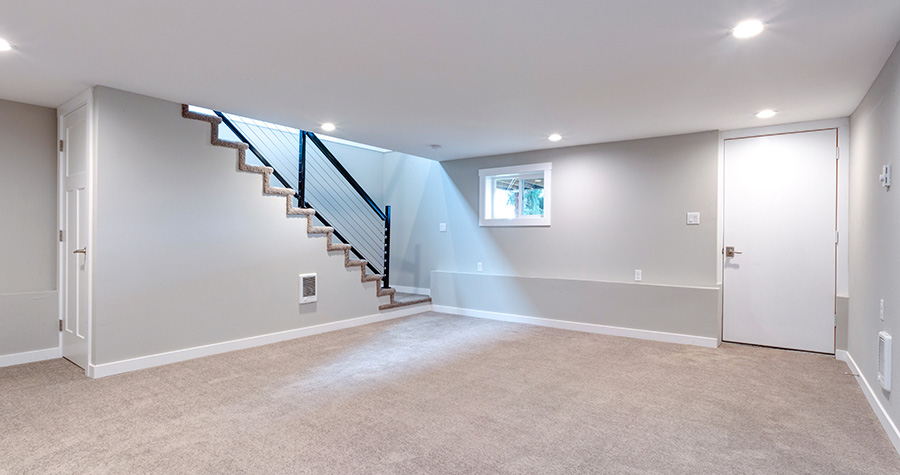Because it is in direct contact with the ground, your basement will always be somewhat cooler than the other floors of the house. But when hot, humid air makes its way to the basement, it tends to condense on the colder surfaces that it comes in contact with.
In humid conditions, materials subject to rot, like wood and the paper in gypsum wallboard, can become covered in mould. In addition to general discomfort (including an unpleasant smell), the occupants of the house may experience irritation of the eyes, nose and throat, and even develop more complex respiratory issues.
By installing a hygrometer in your basement, you can check the humidity level from season to season. In the winter, for example, it should not exceed 40%.
Causes
Leaks
First, find out where all the humidity is coming from. Are there water infiltrations from outside, or leaks from plumbing? An inspection of the foundation, drains and plumbing should find the source of the problem and set you on the right path to a solution.
Other sources
It’s best not to dry laundry or firewood in the basement. If you have a bathroom in the basement, put in a fan that vents to the outside, if there isn’t one already. And, of course, make sure to maintain it according to the manufacturer’s instructions.
Solutions
Ensure good air circulation
Move furniture and items away from walls so they don’t impede air flow. Also, check your window coverings: curtain fabric that’s too heavy, or a blind installed too close to the frame, can also hinder air circulation. If you have some type of ventilation, turn it on to improve air flow in the basement.
Be careful with storage
Avoid clutter in the basement. Reduce the amount of organic materials—e.g., a bookcase full of books, wood furniture, carpeting—which are conducive to mould formation. Use plastic bins instead of cardboard boxes to store items and documents.
Lower the relative humidity in the basement
An air conditioner can help control basement humidity, because as it cools the air, it also dehumidifies it. If you can install one, so much the better, but for most people, there is a simpler and more affordable way of lowering the humidity level in the basement: a dehumidifier.
If you have established that water infiltration isn’t the culprit, a good portable dehumidifier can lower the humidity level to below 50%, which should prevent mould from forming.
Lastly, it’s worth remembering that damage to your home caused by continued humidity is not covered by home insurance. That’s one good reason to address a problem with excess humidity as soon as possible.
Source: CAA Quebec



